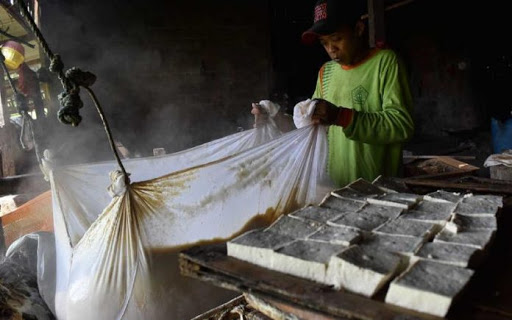Over the years, there have been developments in the industrial sector in various parts of the world. Many countries compete to advance the industrial sector. In Indonesia, this focuses on industrial development especially the metallurgical industry. Waste products from several industries produce accumulation of heavy metals in the environment, especially in the aquatic environment. This includes industries that specialize in metal coating, metallurgy, smelting, batik, and other manufactures.
Heavy metal waste has a high degree environmental impact. Although heavy metal elements can generally be used in industry, but in high concentrations, heavy metals are toxic to living organisms. Some examples of heavy metals that pollute the environment are lead (Pb) and cadmium (Cd). The presence of heavy metals in aquatic ecosystems must be monitored continuously because it is difficult to degrade. The presence of these metals in the food chain can cause biomagnification in the human body.
The concentration of heavy metals in waste discharged into aquatic ecosystems can be reduced through the reverse osmosis process, membrane based filtration, and ion exchange. However, expensive operational costs can be obstacles. A simple, effective, and relatively inexpensive alternative is the adsorption method. This method involves the use of various types of adsorbents, especially those from biopolymer-based biomass wastes such as tofu, soybean, alginate, and other solid wastes.
Research that has been done is on adsorption using adsorbents derived from solid tofu waste immobilized on the surface of silica to strengthen mechanical properties, and resistance to solid tofu waste against bacterial and fungal attack and resistance in acidic media. Immobilization with silica increases the adsorption capacity of heavy metal ions. In addition to the adsorption capability, the models, kinetics, and adsorption thermodynamics of Pb and Cd metal ions were studied.
The nature of solid waste from the home industry of tofu craftsmen is still the same as tofu even though it has changed shape. Tofu industry solid waste can be used to bind metal ions causing water pollution. Tofu contains protein that has the ability to bind metal ions in water. From a series of experiments, it turns out that solid tofu waste can remove cadmium and lead heavy metals.
The ability of tofu solid waste is supported by the surface morphology of tofu solid waste which has cavities that allow heavy metals to be trapped inside. The ability of cadmium and lead removal is greatly influenced by the kinetics and thermodynamics of adsorption. The results showed that solid tofu waste has great potential for use in heavy metal waste processing. (*)
Author: Eko Prasetyo Kuncoro
Details of the study available at:
https://revues.imist.ma/index.php?journal=morjchem&page=article&op=view&path%5B%5D=19119





